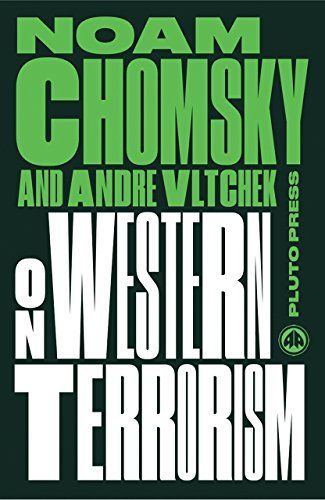
On Western Terrorism From Hiroshima to Drone Warfare
Noam Chomsky discusses Western power and propaganda with filmmaker and investigative journalist Andre Vltchek.This book is the perfect introduction to Chomsky's political thinking, and makes a refreshing read for anyone who is uneasy about the West's wider role in the world.Beginning with the New York newsstand where Chomsky started his political education as a teenager, the discussion broadens out to encompass colonialism and imperial control, propaganda and the media, the 'Arab Spring' and drone warfare. The authors offer a powerful critique of the legacy of colonialism, touching upon many countries including Syria, Nicaragua, Cuba, China, Chile and Turkey.Contains a new foreword by Noam Chomsky.
Reviews
Gavin@gl